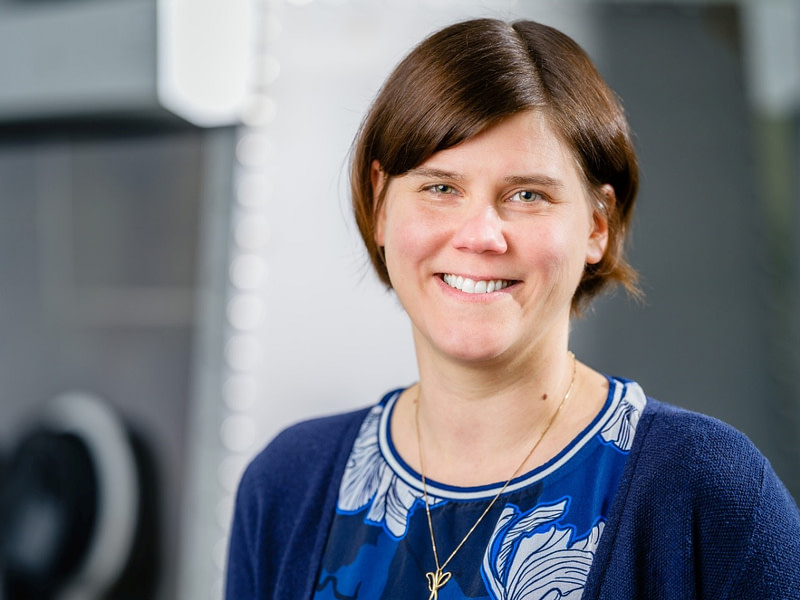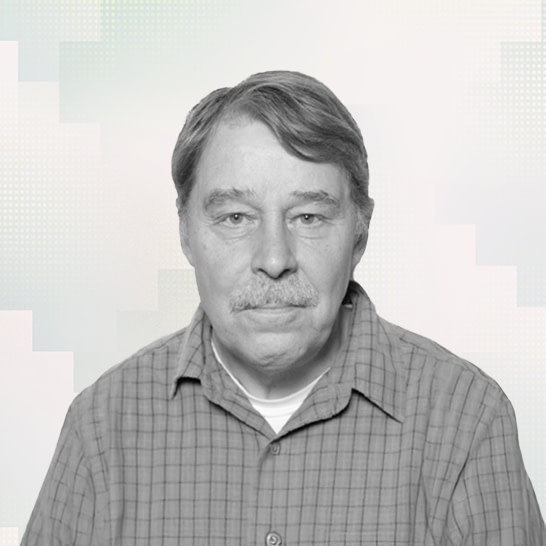Finnish Nina Huittinen was recently appointed as a professor at Freie Universität Berlin, making her a leading radiochemist worldwide. In this interview she discusses the biggest demands and challenges in radiochemistry today, one of many is how to address issues related to nuclear waste and aging power plants.
Teksti Jukka Lehto, kuva HZDR, André Wirsig

After completing 11 years ago her Ph.D. studies in radiochemistry at the Department of Chemistry, University of Helsinki, Nina Huittinen finds herself walking down the corridors at the Freie Universität Berlin. a leading German university. In May this year, she was appointed to full professor in inorganic chemistry with focus on radiochemistry.
Now she is responsible for the education and supervision of young chemists and emerging radiochemist in the capital of Germany.
Q: What have you done in your professional life so far?
A: I am a radiochemist. During my career, I have contaminated and decontaminated various lab equipment, I have worn a gasmask and lead apron at the same time, and I have fallen asleep in a whole-body counter.
On a more serious note: I have taught chemistry or radiochemistry in two different countries, at four different universities in four different languages. I have worked in Finnish and German national projects related to spent nuclear fuel disposal safety.
My connection to Germany started already in 2005, as an Erasmus student at the University of Heidelberg. I returned several times to Germany during my Ph.D. and having finished my Ph.D. at the University of Helsinki in 2013, I started as a postdoc at the Institute of Resource Ecology at the Helmholtz-Zentrum Dresden-Rossendorf.
There I continued my scientific career as a research associate, and later became a group leader. Now I am at the Freie Universität Berlin.
My move to Germany has in other words become much more permanent than I ever anticipated when I packed my bags more than 11 years ago.
”Coming from Finland to Germany as a radiochemist was a very eye-opening experience.”
Q: What are your present research interests?
A: A large part of the research that I have been involved in deals with reactions of actinides in a geochemical setting, in contact with mineral surfaces, in the aqueous phase in the presence of strong inorganic ligands and so forth.
This is to better understand the behavior of actinides in future underground nuclear waste disposal sites, should they ever get released from the waste matrix and the containers housing the spent fuel elements. One application of the research is thereby related to the safety analysis of such nuclear waste storage sites.
In the last years, my research has focused on crystalline ceramic phases that could be used as waste forms for specific radioactive waste streams.
We have tried to gain a very global understanding of such crystalline host matrices, combining structural investigations with studies addressing their radiation tolerance, high-pressure and high-temperature behavior, and their chemical durability.
”The decision for a repository site in Germany may be made as late as 2068. By then, I will be long retired.”
Q: Have you found differences in academic life between Finland and Germany?
A: Coming from Finland to Germany as a radiochemist was a very eye-opening experience, especially as my research evolved around nuclear energy and the safe disposal of nuclear waste.
Finland and Finns have on average a very different perception of radiochemistry and nuclear energy than Germans do. Where Finland was planning and executing the construction of Olkiluoto 3, which started producing electricity to the grid last year, Germany decided to completely phase out nuclear power in the aftermath of the Fukushima accident in 2011. In April last year, the last nuclear power plant in Germany was shut down.
When it comes to the disposal of the spent fuel elements from the commercial nuclear reactors, Finland is the global leader, with a planned start of the final disposal in this decade.
Germany, on the other hand published the site selection act in 2013, i.e., a law for the search and selection of a site for a repository for heat-generating radioactive waste. In other words, the search for a suitable site to build a repository in Germany, started the same year I finished my Ph.D. and moved to Dresden.
According to current estimates, the decision for a repository site in Germany may be made as late as 2068. By then, I will be long retired.
Q: What do you think are the biggest demands or challenges in radiochemistry today?
A: Radiochemistry is a very broad term that covers aspects from energy generation to healthcare to the fundamental chemistry of the radioactive elements.
When it comes to radiochemistry research related to the nuclear fuel cycle, research demands and challenges are related to the very different approaches to nuclear electricity generation on a global scale and the long timescales for research-based decisions in nuclear policymaking that spans over generations.
Let me shortly elaborate on the diverse research demands. With the need to reduce CO2 emissions, nuclear power remains a low-carbon option in the global energy mix. Research in many countries therefore focuses on developing efficient reactor designs, like small modular reactors (SMRs) and Generation IV reactors, which aim to improve efficiency, reduce waste, and enhance safety. These advancements require research on the entire nuclear fuel cycle, from fuel design to waste disposal.
Meanwhile, countries like Germany are shutting down their nuclear plants, making reactor decommissioning a growing field. Radiochemical research will be key in managing waste, developing decontamination strategies, and ensuring safe land reuse.
”How do we ensure that knowledge transfer from today’s experts to young, emerging scientist and radiochemists occurs?”
Q: How do you see the needs of nuclear waste disposal in Germany?
The long-term challenges can be understood using the search and selection of a site for the nuclear waste in Germany.
The site selection act, which stipulates that a site with the best possible safety for the final disposal of high-level waste has to be identified, requires comparative research of three different host rock formations: clay, crystalline rock and salt rock, which include a broad spectrum of different chemical and physical parameters that have to be accounted for.
The new insights have to be combined with existing results, and interdisciplinary research across various scientific, engineering, and environmental fields have to be merged. This will take decades!
With the clear demands for novel radiochemistry research over long time-scales, how do we ensure that knowledge transfer from today’s experts to young, emerging scientist and radiochemists occurs? Can we rely on licenses for existing and new labs to enable continued research with all radioactive elements also in the future?
These challenges require decisions by our policymakers, from the government to regulatory agencies and legislators.
Q: Is there something in particular that appeals to you about your new position?
A: I get to be in the middle of the university life again with all its perks and the liveliness. Although I have been teaching for many years at the Technische Universität Dresden, it is a different thing to be employed directly at a university again.
I like the scientific exchange, the breadth of scientific topics “under one roof” and standing in the lecture hall in front of young students from all over the world.
”I like standing in the lecture hall in front of young students from all over the world.”
Q: How do you intend to shape the radiochemistry education and research?
A: Radiochemistry education needs to be versatile. Giving the students a broad overview of radiochemistry, from the fundamentals to the various applications, is important.
I am currently restructuring the basic radiochemistry course at the FU Berlin, so that it includes both the fundamental aspects of radioactivity, but also the chemistry and environmental behavior of the radioactive elements.
This course will be accompanied by a practical module, as there really is no way of becoming a radiochemist without hands-on work with the radioactive elements, and the required know-how to do this in a safe way. With these lectures and practical courses, the students should be equipped to work in a radiochemical lab outside or in academia.
Understanding the fundamental chemistry of theradioactive elements, especially those with complex electron configurations and multiple oxidation states, is crucial for developing safer nuclear fuels, improving strategies for radioactive waste disposal, and understanding their behavior in the environment.
Therefore, the radiochemical research at the FU Berlin will be a blend of fundamental chemical research and the more application-driven one, focusing on current requirements for a safe storage of the existing spent nuclear fuel in Germany, but also on more sustainable options for nuclear energy production and waste management.
Q: What do you love about your job?
A: The excitement when something unexpected, novel, strange, unpredictable happens – anything that makes the eyes of a student or scientist sparkle – might be an unusually stable Pu(V) stock solution (which is supposed to disproportionate), or a miscibility gap where there shouldn’t be one, or the very first luminescence spectrum ever recorded from some nuclear-relevant material. Sometimes “minor revisions” does the trick.

Jukka Lehto
Professor emeritus in radiochemistry, University of Helsinki.
Kirjoittaja Jukka Lehto työskenteli Helsingin yliopistossa radiokemian professorina 2005–2018. Hänen tutkimusalueitaan olivat ydinjäteliuosten puhdistaminen, ympäristön radioaktiivisuus, ydinpolttoaineesta peräisin olevien radioaktiivisten aineiden kulkeutuminen kallioperässä sekä haitallisten metallien käyttäytyminen kaivosjätteissä.
Lehto oli pitkään aktiivinen radiokemistien kansainvälisessä yhteistoiminnassa, mistä hänelle myönnettiin elokuussa 2024 EuChems’n Nuclear and Radiochemistry Divisionin Pro Meritis -ansiomerkki.

Jukka Lehto
Writer is professor emeritus in radiochemistry, University of Helsinki.
Jukka Lehto työskenteli Helsingin yliopistossa radiokemian professorina 2005–2018. Hänen tutkimusalueitaan olivat ydinjäteliuosten puhdistaminen, ympäristön radioaktiivisuus, ydinpolttoaineesta peräisin olevien radioaktiivisten aineiden kulkeutuminen kallioperässä sekä haitallisten metallien käyttäytyminen kaivosjätteissä.
Lehto oli pitkään aktiivinen radiokemistien kansainvälisessä yhteistoiminnassa, mistä hänelle myönnettiin elokuussa 2024 EuChems’n Nuclear and Radiochemistry Divisionin Pro Meritis -ansiomerkki.
Tilaa uutiskirjeemme!
Saat uusimmat uutiset suoraan sähköpostiisi



